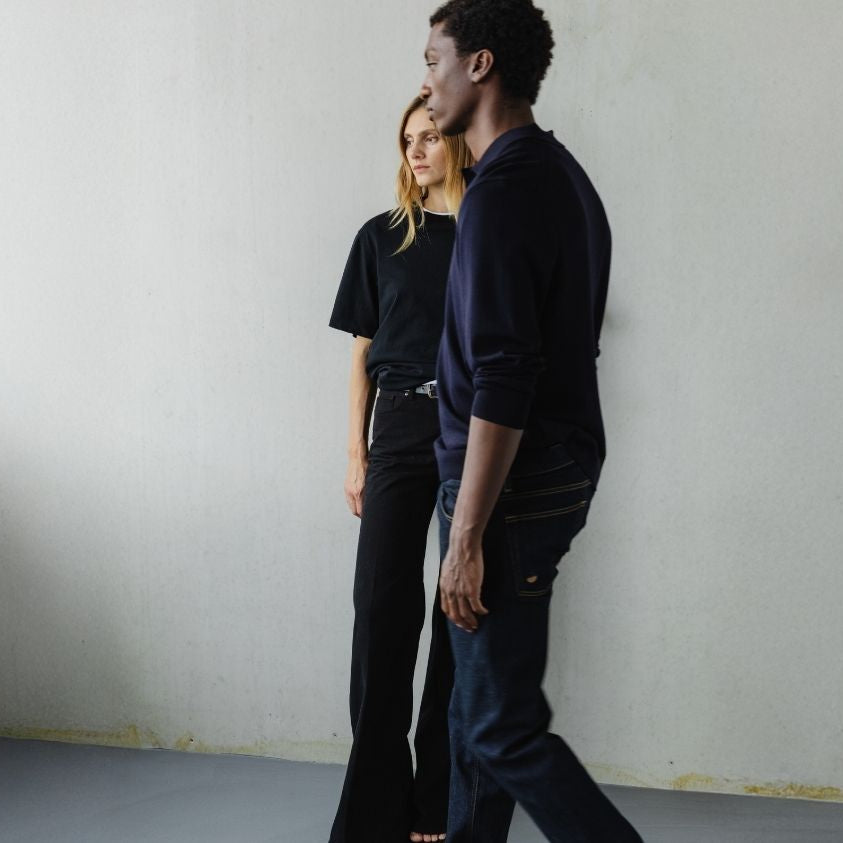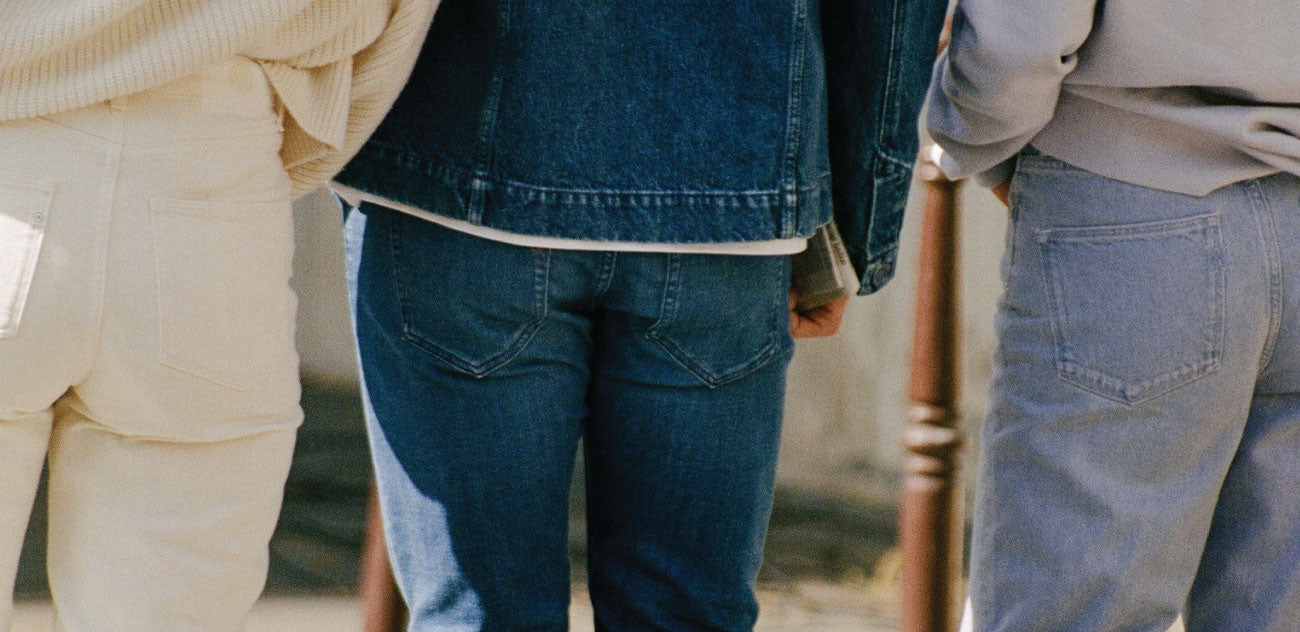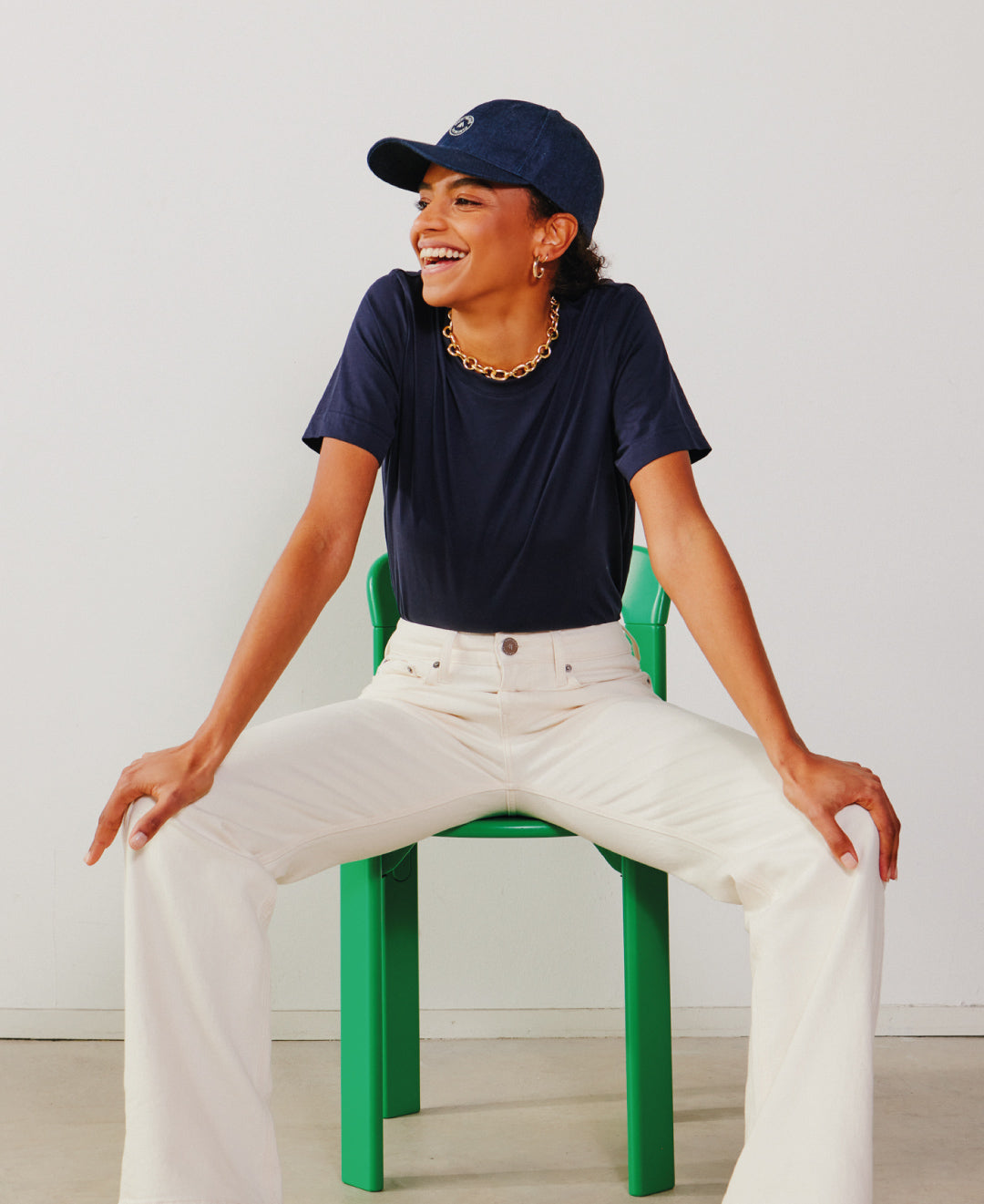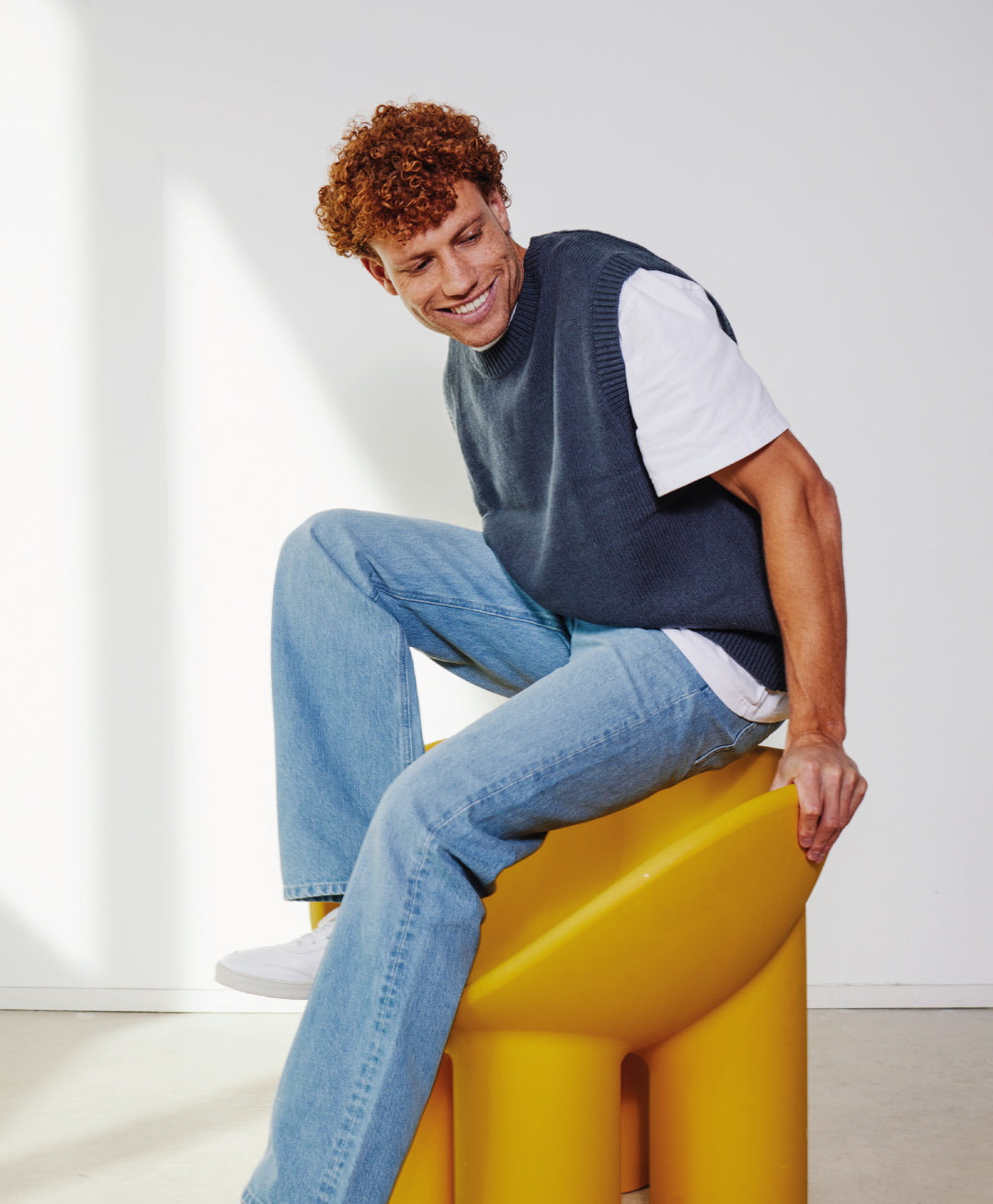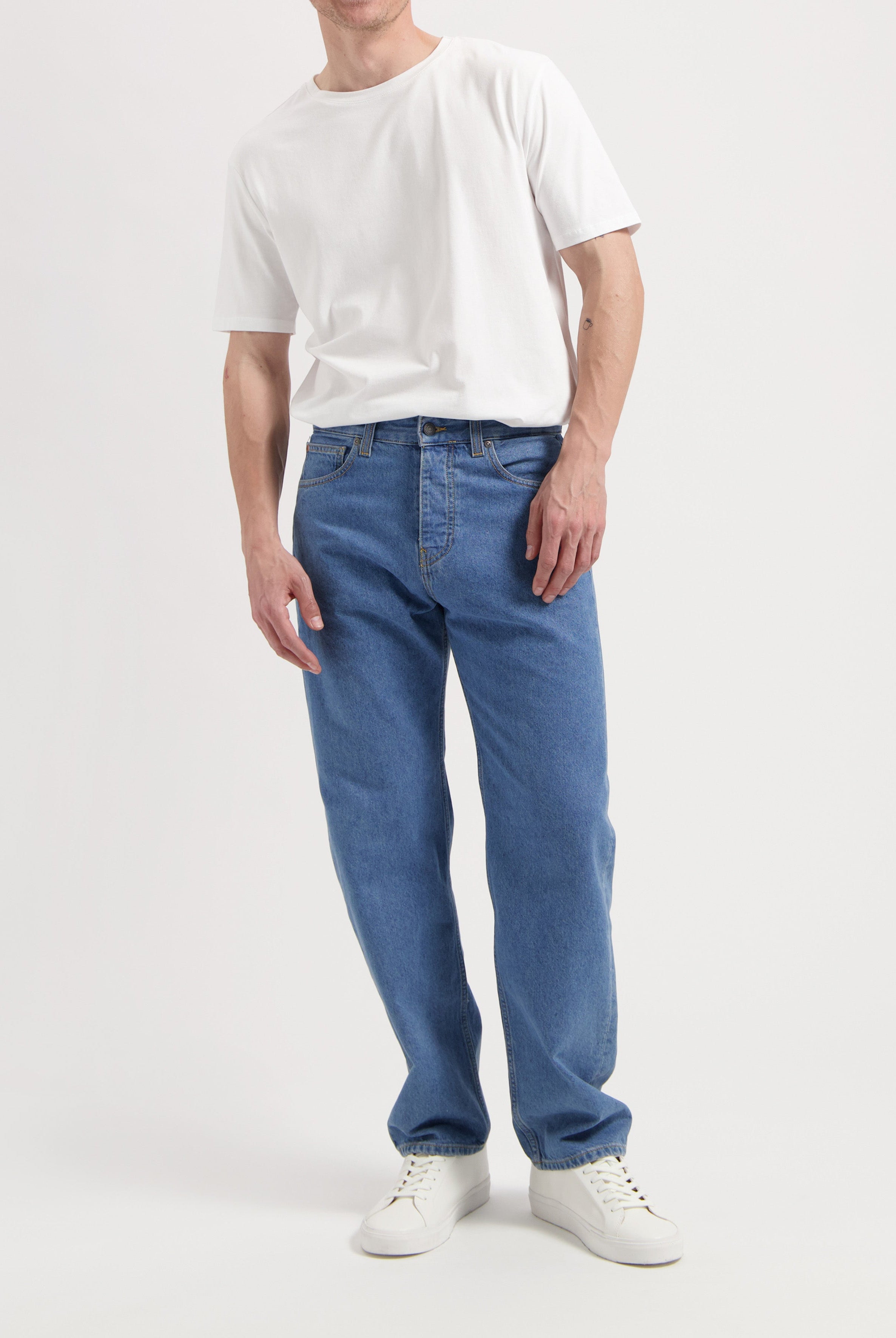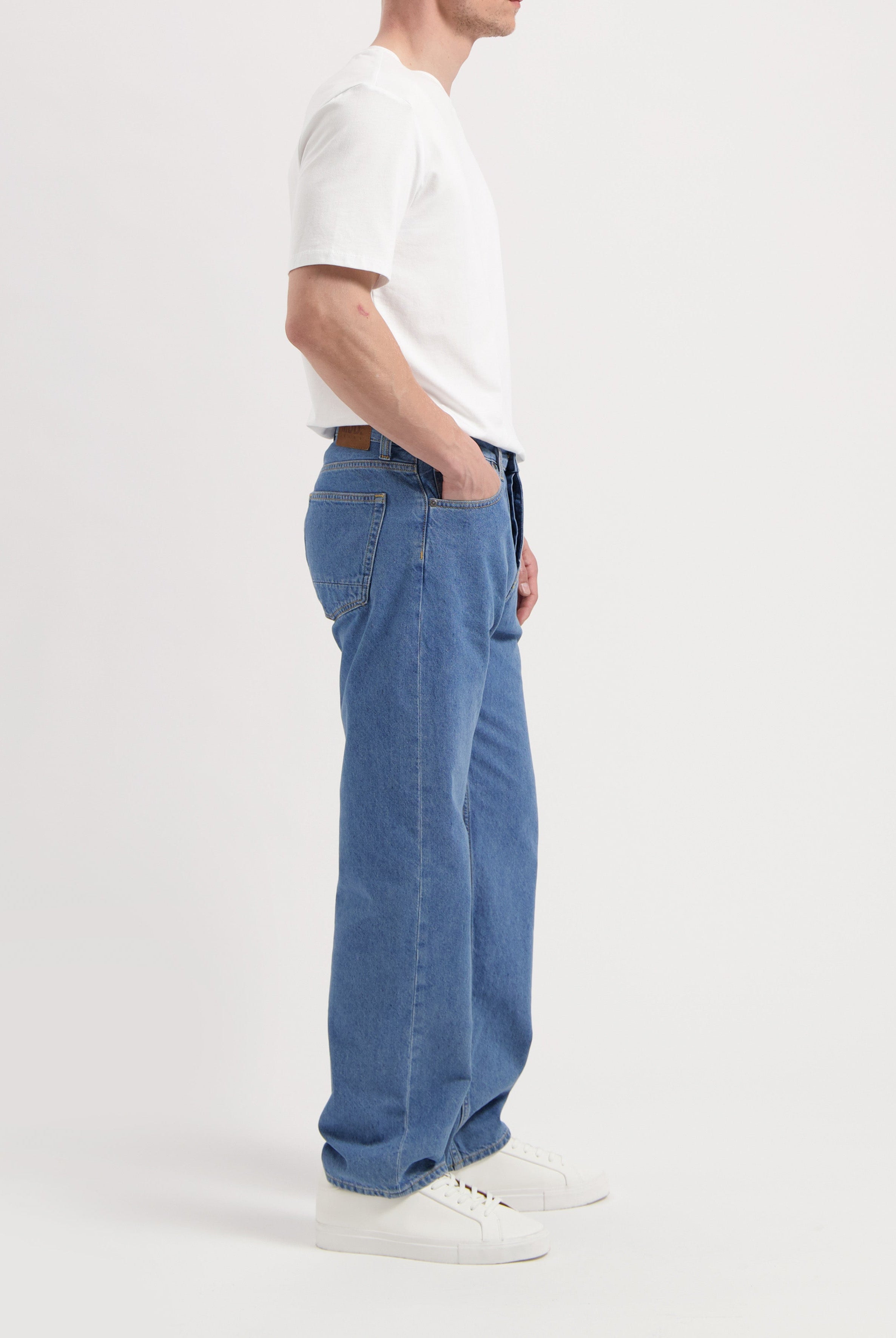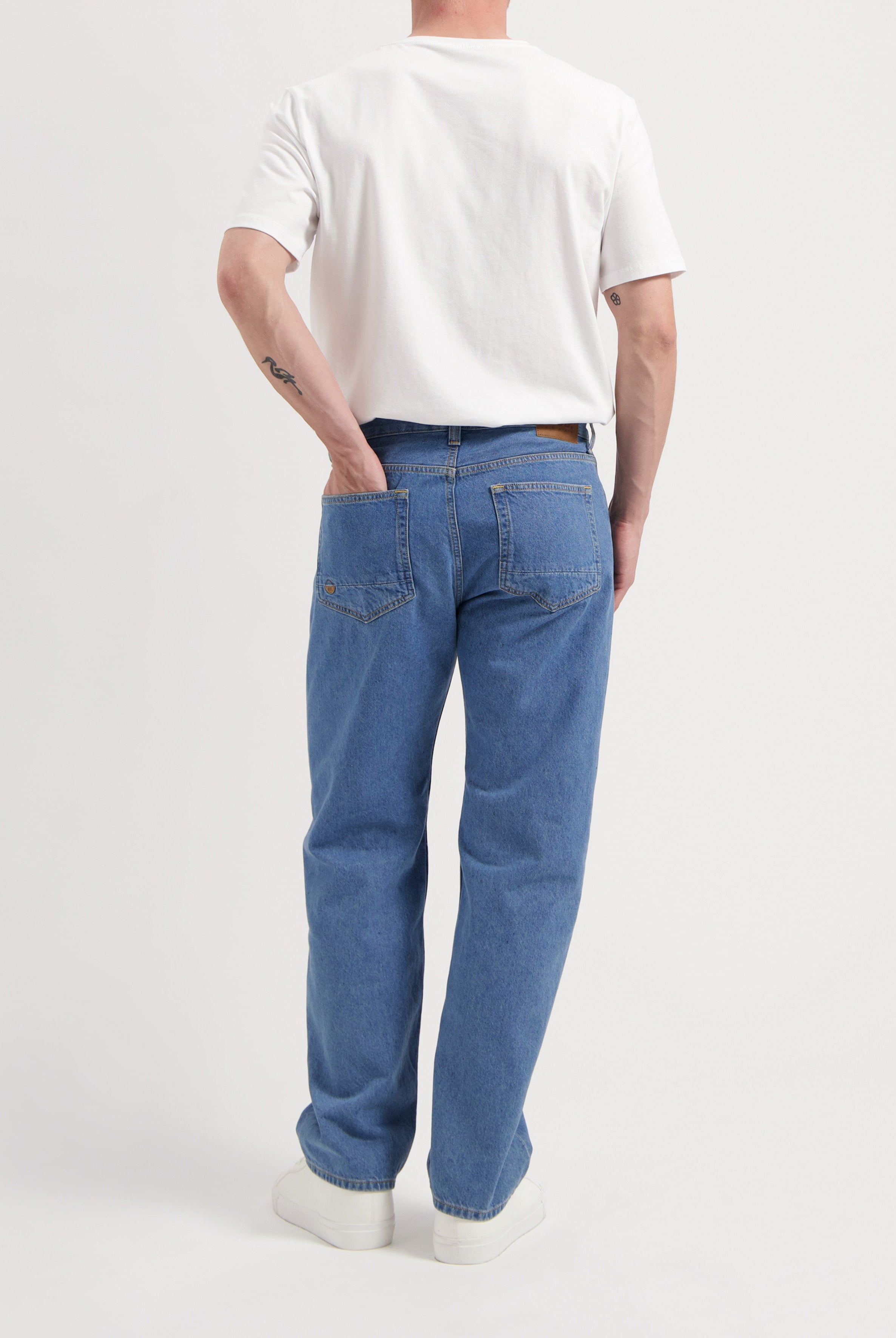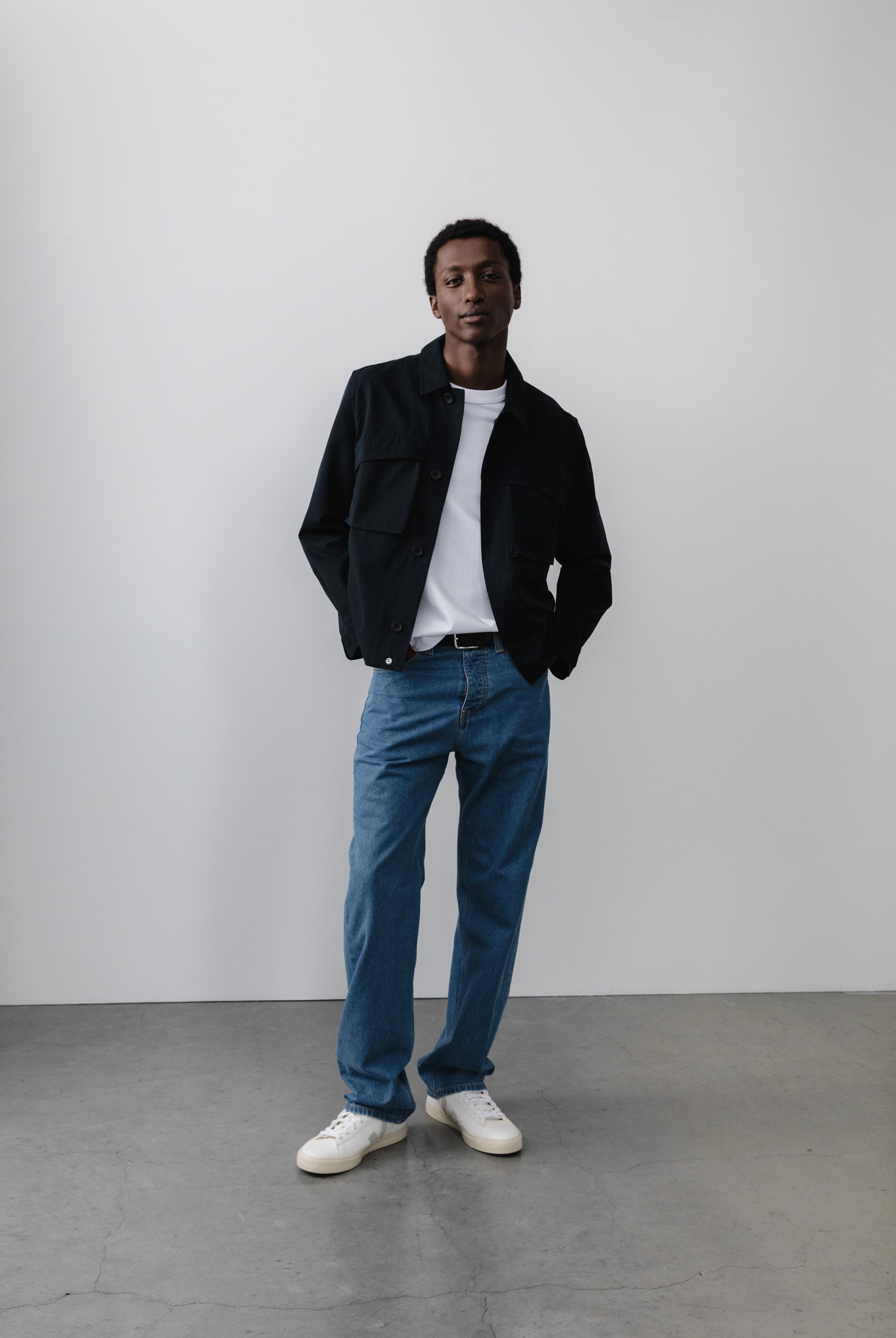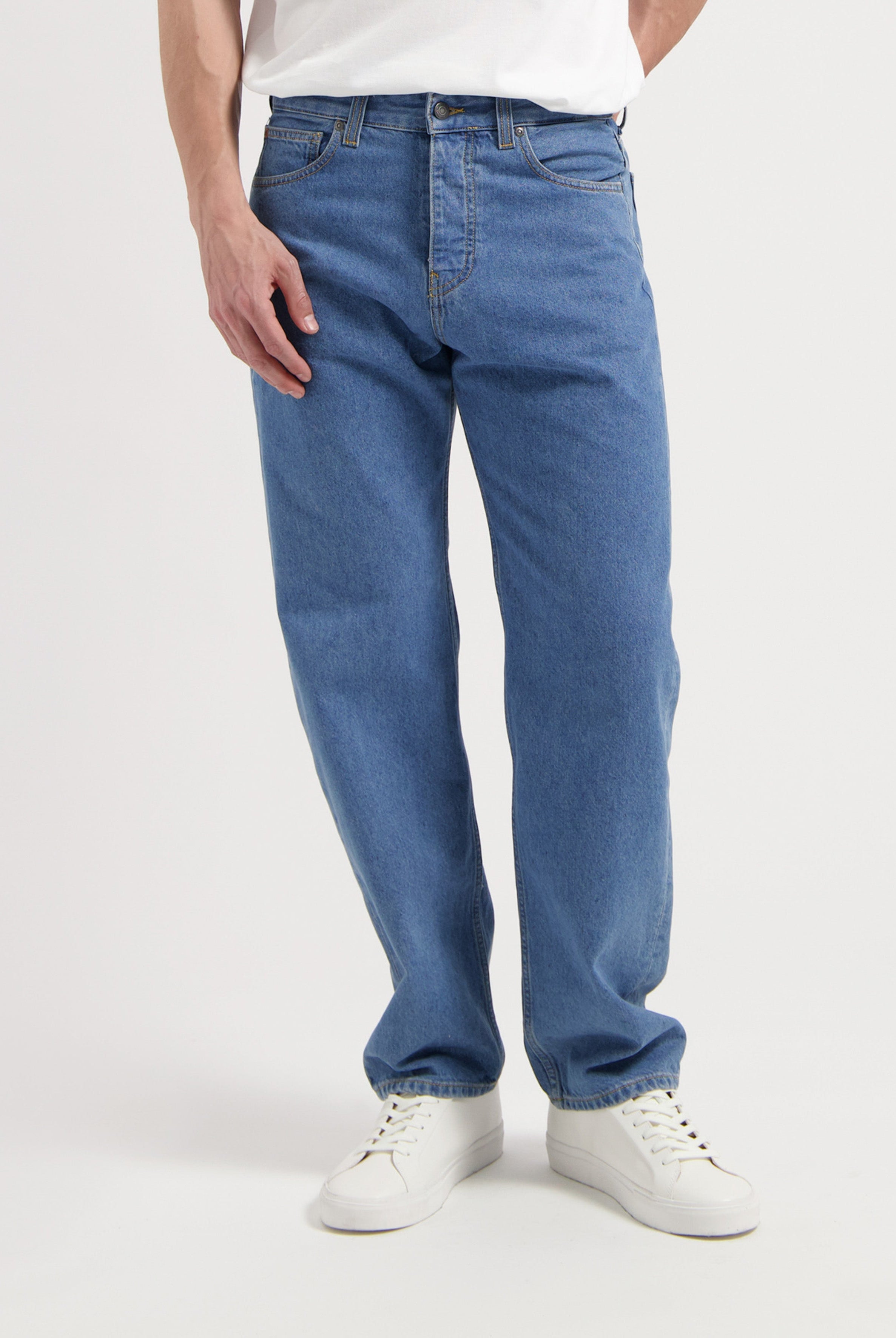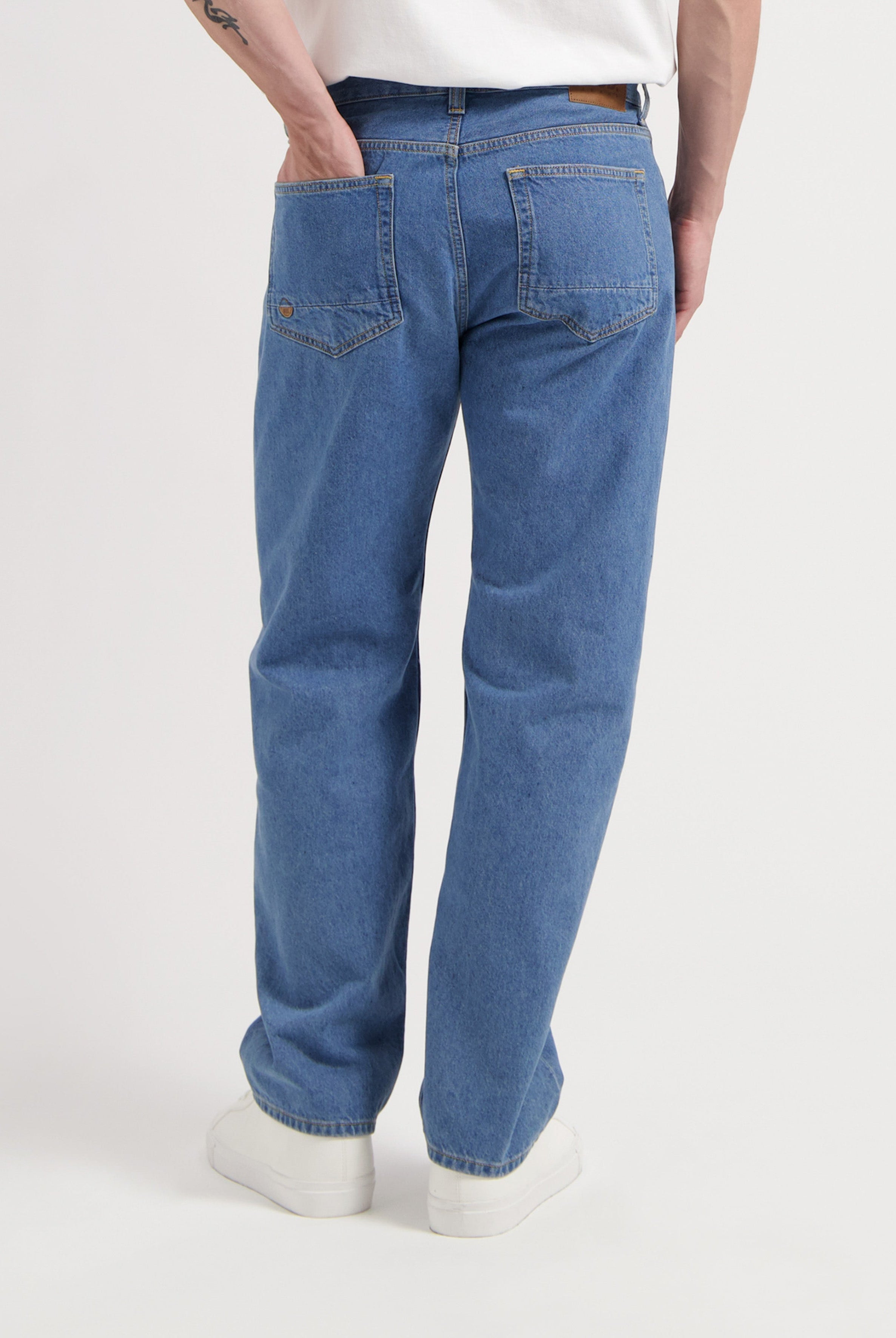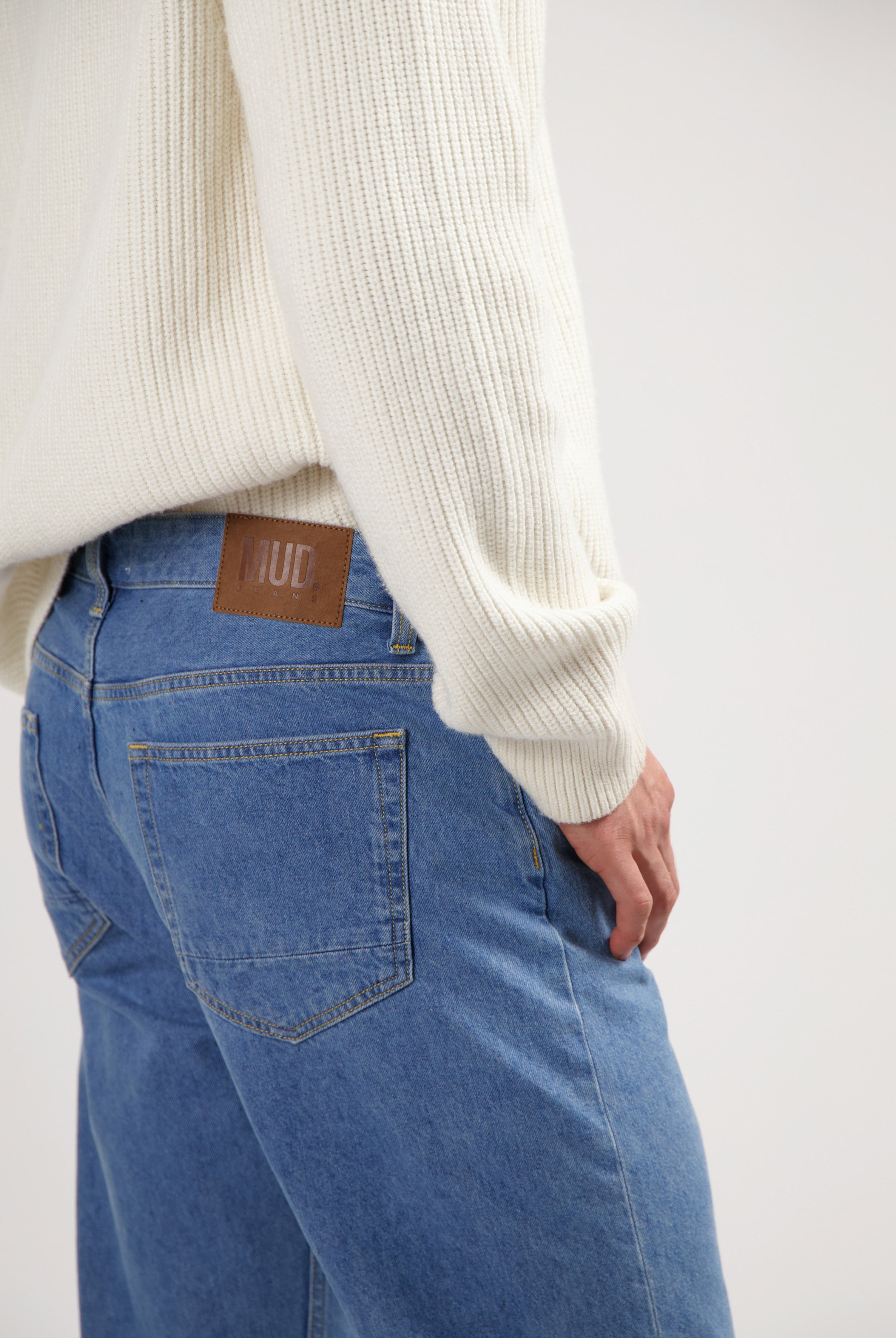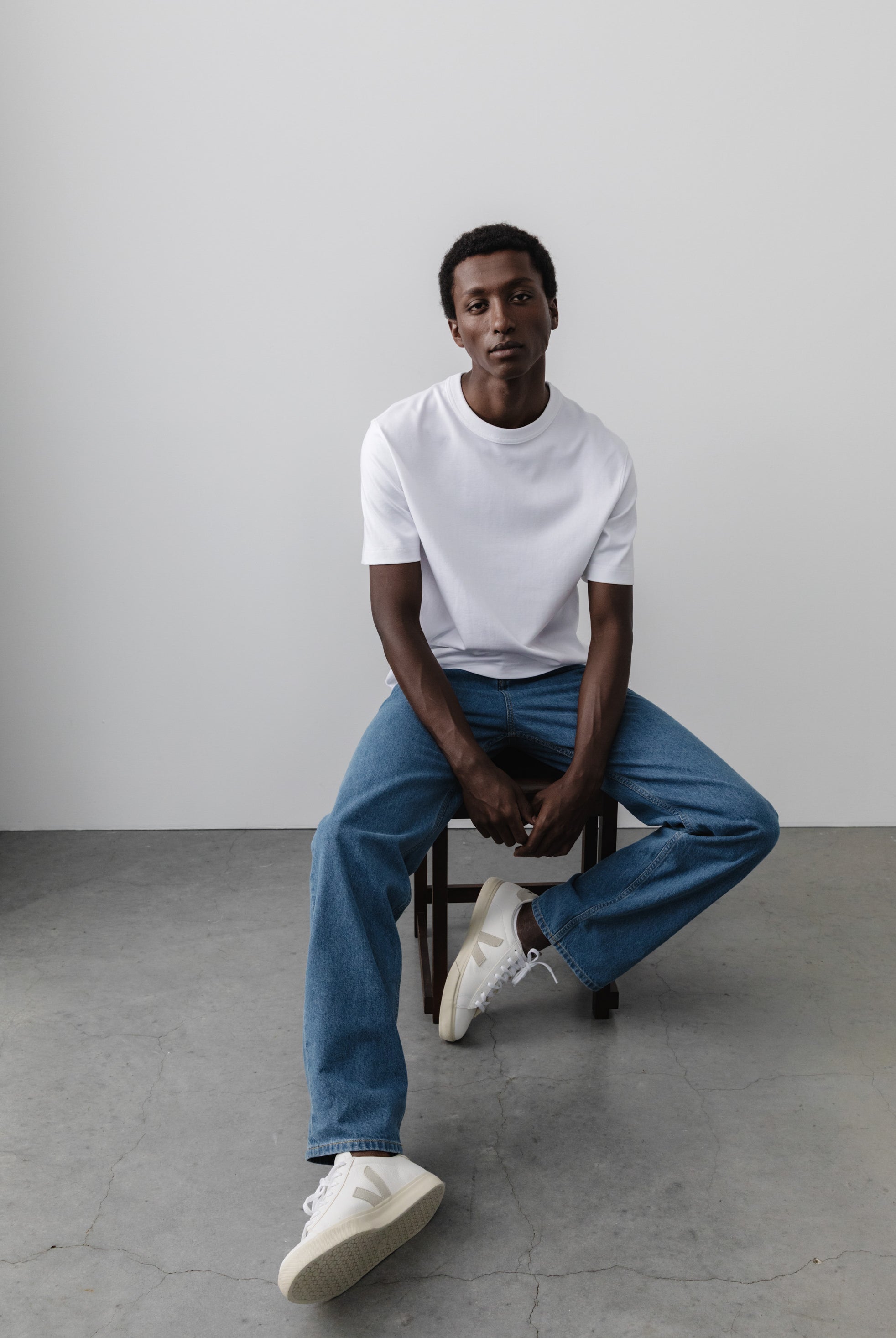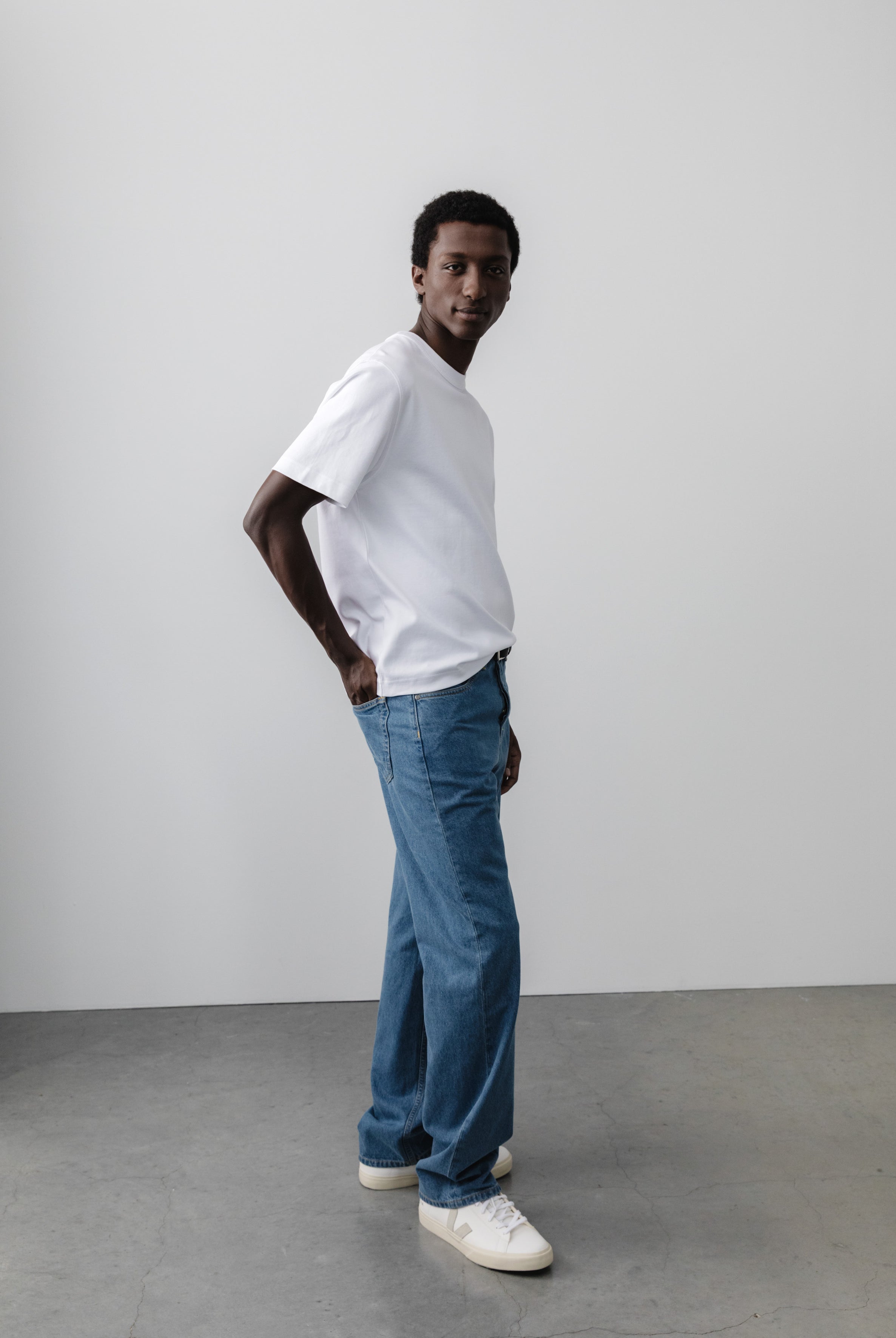Bei
Was ist das Besondere an YouSstex?
Unsere Kollegen bei YouSstex erhalten drei Wochen bezahlten Urlaub und der Eigentümer Habib Mansour ist ein lizenzierter Apotheker, sodass alle Mitarbeiter bei Bedarf kostenlose Medizin genießen. Außerdem ist der Transport zu und aus der Fabrik für alle Mitarbeiter kostenlos arrangiert.
Mit 400 Frauen, die in der Fabrik arbeiten, ist YouSstex ein Ort der weiblichen Ermächtigung. Dies spiegelt sich auch in den Gewerkschaftsvertretern von YouSstex wider, bei denen es sich um 70% Frauen handelt.
Innovation bei Yousstex
YouSstex wurde von Habib Mansour gegründet, der an die Revolutionierung der Modebranche glaubt jeans in der Fabrik produziert.
Im Jahr 2014 investierte er in eine hochmoderne Wäsche als Ergänzung der Nähleitungen bei Yousstex.
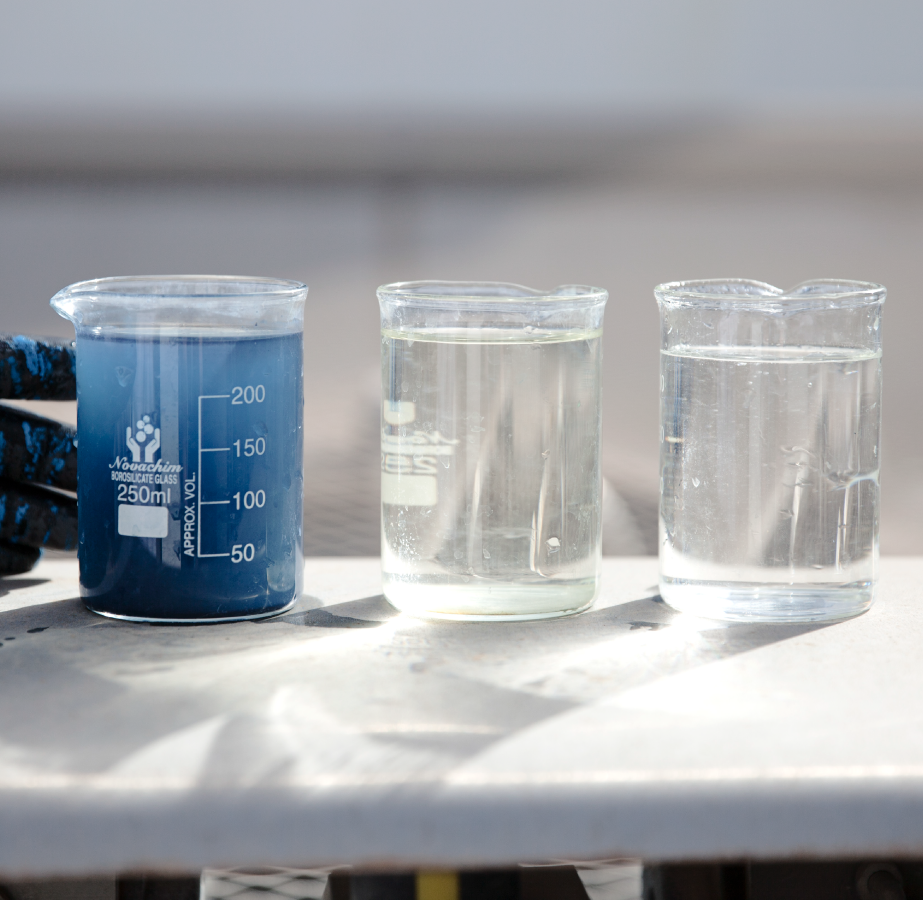
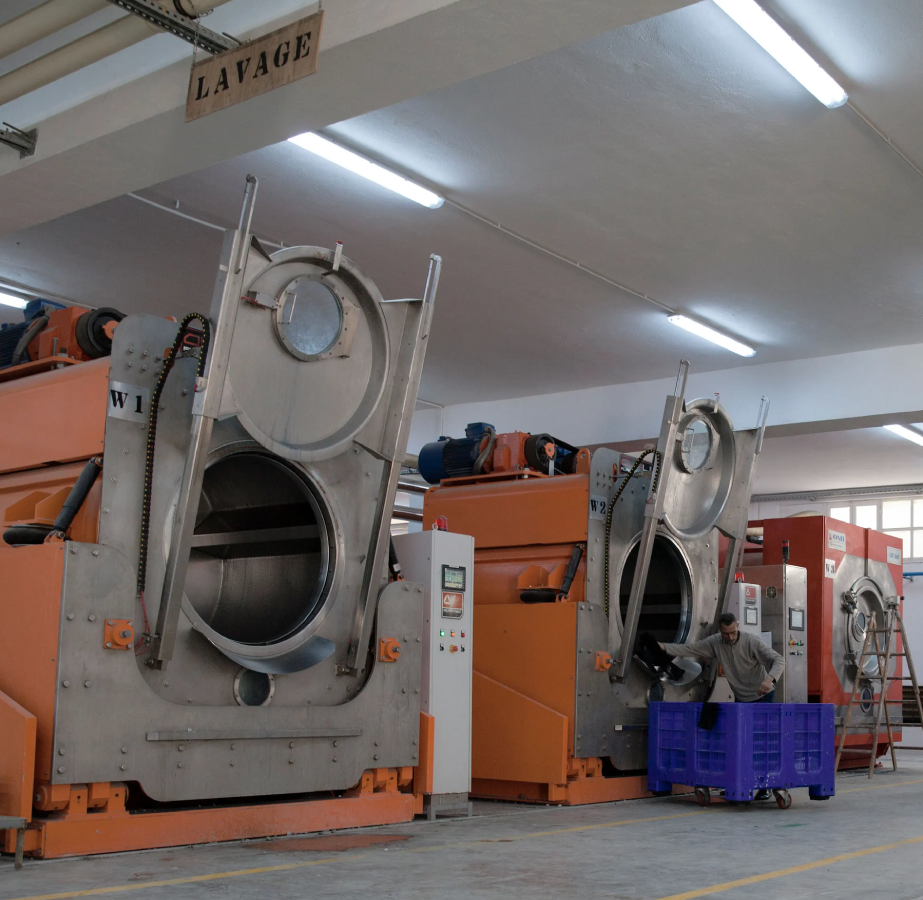
Wasserrecycling
YouSstex recycelt 95% des Wassers, mit dem wir unsere produzieren, um unsere zu produzieren jeans (Die verbleibenden 5% verdampfen). Dies ist durch einen Filtrationsprozess und umgekehrte Osmose möglich. Erkennen Sie unser Team, das das recycelte Wasser im Video unten trinkt!
E-Flow
Die E-Flow-Technologie ist ein innovativer Ansatz, mit dem YouSstex nachhaltig Abriebsprozesse durchführen und ungiftige Chemikalien an die jeans. Im Gegensatz zu traditionellen Ansätzen verwendet ein Nebel und Nano-Bubbles anstelle großer Wassermengen. Dies spart 95% Wasser und 90% Chemikalien und bedeutet auch, dass Chemikalien oder andere Abfälle keine Entladung vorliegen.
Laser
Um einige unserer zu geben jeans Der klassische, verzweifelte Look, YouSstex, verwendet einen bestimmten Laser. Das Erreichen dieses Aussehens kann traditionell zahlreiche schädliche Praktiken wie Steinwaschen und PP -Spray beinhalten. Durch die Verwendung von Laser können wir stattdessen Wasser und Chemikalien sparen und ist auch besser für die Gesundheit der Arbeitnehmer vor Ort.
Schlammproduktionstour
Das Mud -Team unternahm eine Reise hinter der Naht, um die Leute zu treffen, die unsere machen jeans. Einen Blick in der Fabrik haben.
More About Yousstex International
Since when does MUD Jeans have its jeans produced at Yousstex?
Since 2013.
Is Yousstex the only producer of MUD Jeans or does MUD Jeans also have other partners?
Youstex is our only partner. We believe in a long-term relationship in which we work intensively together and therefore work with one permanent partner.
Which part of the production process takes place at Yousstex?
At Yousstex, the fabric of our jeans is cut, sewn, washed, marked and packaged.
Why did MUD Jeans choose Yousstex?
Just like MUD Jeans, Yousstex attaches great importance to environmental sustainability and good working conditions. The company uses innovative production techniques that allow us to produce the most sustainable jeans on the planet. Moreover, as a small clothing manufacturer with 550 employees, Yousstex takes good care of its staff.
How is the Yousstex factory monitored?
The factory regularly undergoes audits and controls relating to environmental issues, social conditions and employment conditions, carried out on behalf of renowned international organisations, international customers and national authorities.
Some examples:
· The non-profit multi-stakeholder initiative Social Labor Convergence Program (SLCP);
· Annual audits for ISO 9001, ISO 14001 and ISO 28001;
· HIGG Index (developed by the Sustainable Apparel Coalition to assess and measure the environmental and social sustainability performance of clothing);
· IWAY audits for the responsible purchasing of products and services by IKEA;
· Various Tunisian authorities, such as the police and quarterly visits by ANPE (L'Agence Nationale de Protection de l'Environnement), Tunisia's national environmental agency.
Furthermore, at Mud Jeans we have an intensive relationship with Yousstex and we visit the factory several times a year.
What are examples of innovative production techniques that Yousstex uses?
We do not use traditional toxic production techniques.
Traditionally, pumice stones are used in the washing process of jeans to achieve a lived-in look, which create a toxic sludge and are unhealthy for employees. Yousstex uses ozone and handmade circular HMS stones that last much longer and give a similar look.
These stones remove indigo from the jeans in an innovative and sustainable way, while achieving the vintage look we are looking for.
Yousstex also does not use harmful chemicals in the washing process of our jeans, such as PP spray (Potassium permanganate spray). Yousstex's most important sustainable and innovative production techniques are Ozone, Laser and E-flow (see explanation below).
How does Yousstex's closed water system work?
The Yousstex closed water system works as follows:
First, the water used to produce our jeans undergoes a biological treatment with bacteria and various minerals, followed by ultrafiltration with MBR technology (Membrane Bioreactor)
Finally, a reverse osmosis process is applied, resulting in crystal clear water without minerals.
Rainwater is integrated into the system via open tanks located outside.
Up to 95 percent of the water Yousstex uses to make our jeans is recycled. Five to ten percent of the water evaporates or turns into sludge and is replenished with tap water.
Has Yousstex drilled wells on its property to extract water from the ground?
No. Yousstex has never dug wells or extracted water from the ground.
Is the recycled water really clean enough to drink?
Yes. We drank the water ourselves several times for demonstration purposes. The reverse osmosis removes all particles - including minerals - so it does not quench your thirst.
What shows that Yousstex is a good employer?
All employees receive three weeks of paid leave annually and receive free medication if necessary. Transport to and from the factory is also arranged free of charge for all employees. With 400 women working in the factory, Yousstex is a place of female empowerment. This is also evident from Yousstex's trade union representatives, who are 70% women.
Yousstex applies equal pay for men and women – distinction is based solely on positions in the factory. Many leadership positions are held by employees who started in entry-level positions and developed over time. Veder, in collaboration with an educational center, has set up Yousstex training courses within the factory for employees aged 16 to 20, so that they can work and study under one roof.
When was Yousstex Wash set up, and what was MUD Jeans' role in this?
In 2013. MUD Jeans then indicated that if Yousstex sets up a laundry, it should be a hypermodern and sustainable laundry.


